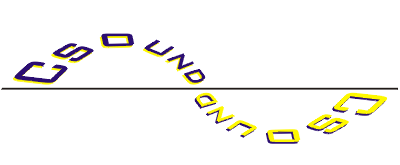
Features
Composing
Departments

Csound Composition
Approaches,Attitudes, and Styles
Written by Michael Rhoades 6/4/99
In his book "Poetics of Music" Igor Stravinski states "...I experience a sort of terror when, at the moment of setting to work and finding myself before the infinitude of possibilities that present themselves, I have the feeling that everything is permissible to me." Csound by its very nature enables this "infinitude" of possibility. It's source code has purposely been left open and accessible allowing anyone to add to a tool which already provides a literally endless array of possible combinations. Logically then, one would conclude as Stravinski did, the composer needs to begin with some sort of framework or limiting structure in mind. The more constricted the structure, the more apt the composer is to utilize the incredible power and flexibility within the medium. An example of this would be a preconception of utilizing one "diskin" sample to compose a piece. If sufficent complexity is implemented in the construction of a sample, using a DAW software such as Sound Forge, Cakewalk, Max, or Cool Edit to name a few, it is entirely possible to create a very evocative work. The limiting idea then becomes a great source for freeing the imagination.
The Csound composer needs a very different attitude from a more traditional composer in that the work is not only a composition but also a performance, a recording session and even final mastering all happening simultaneously. J Krishnamurti, a philosopher, was constantly stating that communication with words is very difficult because the word is not the thing. A tree is a tree not a word which describes it or alludes to it. This idea generalizes very well to musical composition. The score written in staves and the code Csounders write is not the music. The advantage with Csound and computer composition in general, is that within the compositional process the music is actually produced. Like a painter, sculptor or writer, the entire process takes place in the compositional domain. The result is a finished piece of art. The recording is the art. (Obviously there are many ways to expand this to live interactive performance with other instruments and etc.)This makes what we are creating an entirely new artform. Possible for the first time in history, right now. How will we proceed?
This is a controversial area. Let's try to proceed without stepping on anyone's toes. When the electric guitar was invented it changed the face of music forever. This was a gradual process because it seems that at first musicians and composers used it to enhance the musical style they were presently playing. It really added a new spice to the sound. Then, as if from nowhere, came an entirely new musical style that rages to this day. The same sort of thing happened with the invention of other musical tools such as the piano. The evidence of this is the difference in style between the Baroque and Classical eras. Csound and computer music in general, calls out to us to produce an entirely new style of organised sound. Yes, it can and is being used to reproduce existing musical styles and there is nothing wrong and everything right with this. However, we are on the burgeoning of a new musical era waiting for our direction, our implementation of heretofore unimaginable "adventures in sound"*. What a great fortune for all who are answering this call! This is an amazing time to be alive as a composer of computer music! Use your imagination, come up with the greatest expression of who you are as composers of music for the new millennium.
* The expression "adventures in sound" and other ideas were compiled from postings on the Csound mailing list from 6/1/99 to 6/3/99.
Michael Rhoades (Rhoadsmith) may be contacted at mrhoades@innerlightpub.com
or visit his web site at http://www.innerlightpub.com/rhoadsmith .
Thank You for your attention. :)